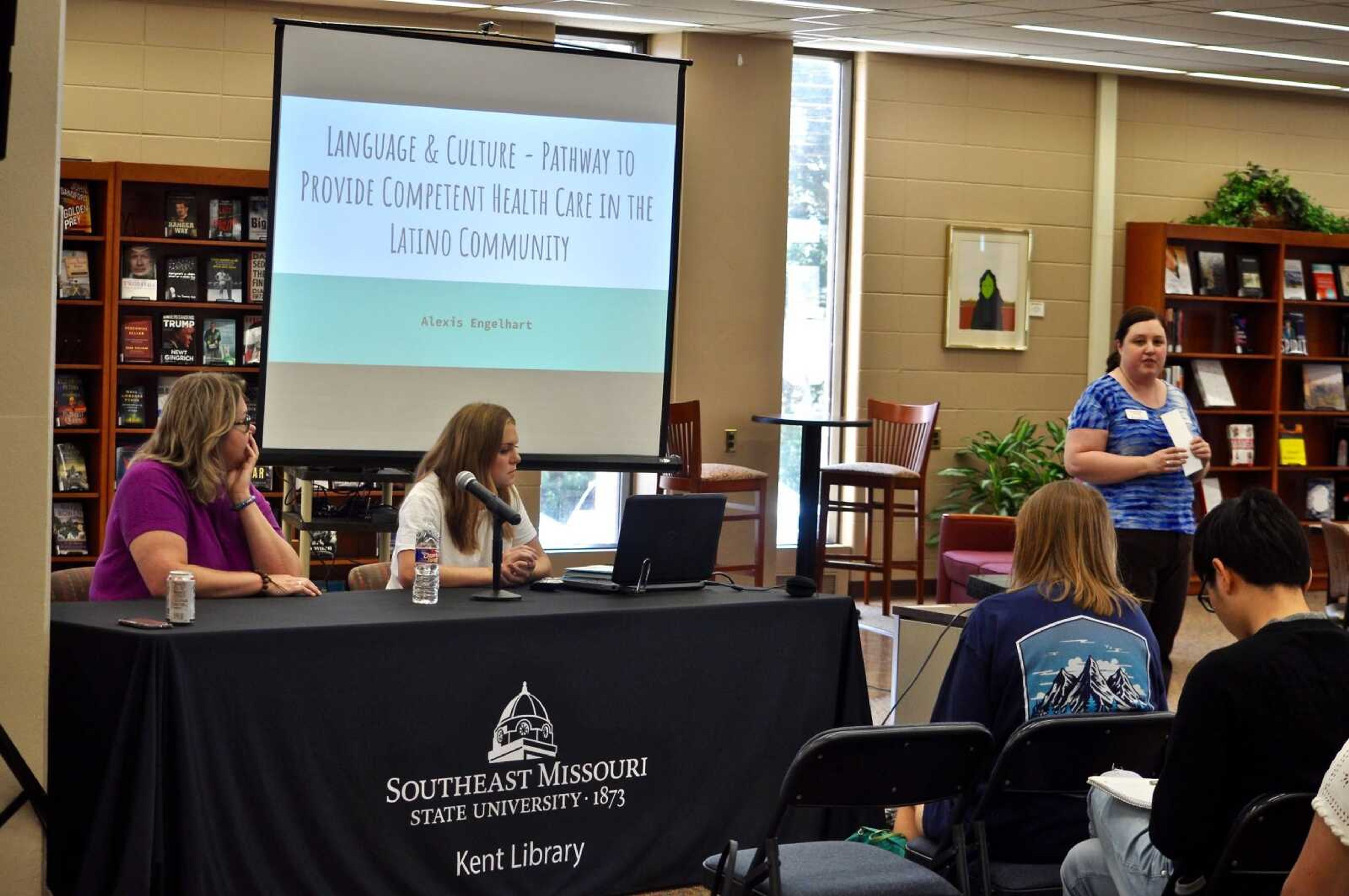Southeast senior Alexis Engelhart shared how a trip overseas led to a new understanding of the treatment of Latinos in the U.S. health care system during a presentation at Kent Library on Sept. 27.

Engelhart’s presentation, entitled “Language and Culture — Pathway to Provide Competent Health Care in the Latino Community,” was part of Kent Library’s Athenaeum speaking series.
Engelhart is double-majoring in biomedical sciences and Spanish, and she founded the organization Global Medical Brigades in February 2016. The organization has since been on two different missions abroad to Honduras.
Engelhart said her coursework and her mission trips have inspired her awareness and concern for the Latino community’s health care within this nation.
She said she wanted to learn Spanish to help her to communicate fluently on mission trips. She said the Latino population was America’s fastest growing minority group and are the least likely to visit the doctor’s office because of the major language and communication barriers present.
“Learning the cultural aspects has given me a new outlook on the Latino community and the Spanish language,” Engelhart said. “It has helped me see the need of a higher quality of healthcare rather than just quantity.”
For example, Englehart said American health care professionals typically are less personal and generally don’t take the time getting to know a patient that is expected in Latino culture. And since most medical professionals also are not fluent in Spanish, Latinos may be discouraged from going to the hospital, she said.
Engelhart was introduced by professor Debbie Lee-DiStefano, who has been working with her and the Brigades for the past year. Lee-DiStefano said Engelhart’s enrollment in the “Spanish for the Health Profession” course she teaches gave Engelhart a new understanding of how to deal compassionately with patients.
The course teaches its students what it means "to work with someone and not treat them as a number, not treat them as a widget or as a problem, but to see them as a whole person," said Lee-DiStefano.
Though she began working with Global Medical Brigades as a resumé-builder, Engelhart said she realized how deeply she cared for people and wanted to provide the best health care possible.
Students on the mission trip “volunteer and shadow local and foreign positions to provide health care access to people who don’t have access,” she said.
The mission trips began at a medical center, where students shadowed specialists as they provided multiple services, such as antibiotics, surgery referral, dentistry, gynecology, pharmacy and education.
Students participated in the education station, teaching children to wash their hands, brush and floss their teeth and exercise. The students also set up a hygiene station and laid concrete floors for families.
Engelhart said her decision to go abroad was not an easy one for her family to accept because they were concerned for her safety and welfare. They strongly discouraged her from going, but now she believes her experiences have helped to show them her passions and increase their understanding and support.
“Don’t be afraid to step out of your box. Just get an idea and run with it, because usually when you run with it, it will be a lot more rewarding than staying in your box,” Engelhart said.
For more information on becoming involved, students should contact SEMO Global Medical Brigades at alschollmeyer1s@semo.edu or at kldennis1s@semo.edu.



